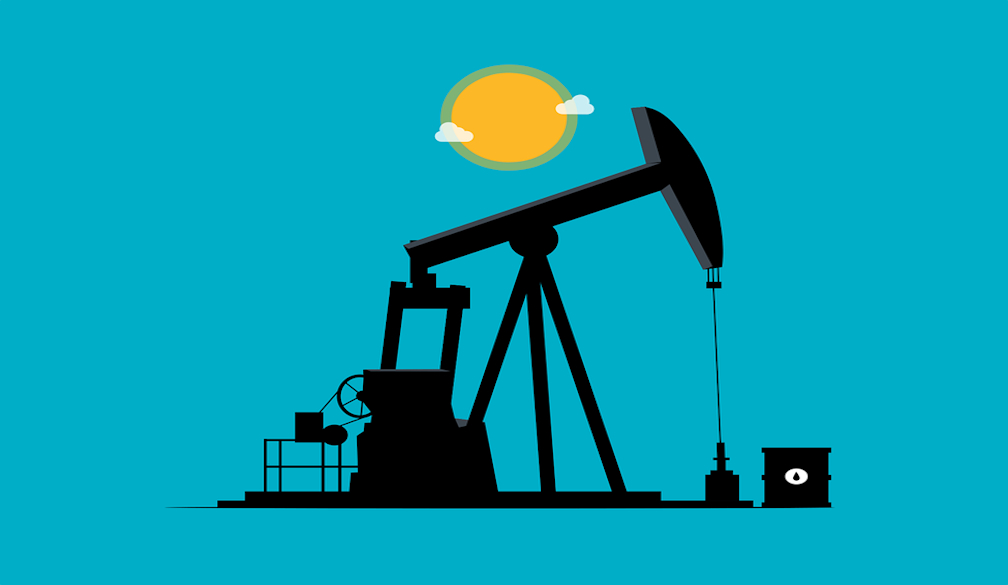Drilling Into the Basics of Crude Oil

Welcome to the fascinating world of crude oil, where mystery meets opportunity and drilling down into the basics unveils the secrets of this precious resource. Crude oil, often referred to as black gold, has an undeniable influence on the global economy. From powering vehicles and heating homes to producing plastics and chemicals, crude oil plays a vital role in our daily lives.
Formation and Extraction of Crude Oil
Crude oil is the result of millions of years of organic matter decomposition. It is formed from the remains of ancient plants and marine organisms that were buried deep beneath the Earth's surface. Over time, the immense heat and pressure transform these organic materials into hydrocarbons, which make up crude oil.
The extraction of crude oil involves drilling wells into underground reservoirs where the oil is trapped. These reservoirs can be found in various geological formations, such as sedimentary rocks or porous sandstone. Once a well is drilled, the pressure within the reservoir forces the crude oil to flow to the surface, where it can be collected and transported for further processing.
Composition and Properties of Crude Oil
Crude oil is a complex mixture of hydrocarbons, which are compounds made up of hydrogen and carbon atoms. The composition of crude oil can vary greatly depending on its source, but it typically contains a range of different hydrocarbon molecules, including alkanes, cycloalkanes, and aromatic hydrocarbons.
The properties of crude oil, such as its density, viscosity, and sulfur content, also vary depending on its composition. These properties play a crucial role in determining the quality and usability of the crude oil. For instance, lighter and less viscous crude oils are often preferred for refining, as they yield a higher percentage of valuable products like gasoline and diesel.
Uses and Importance of Crude Oil
Crude oil is an essential resource that fuels various sectors of the global economy. Its primary use is as a source of energy. Crude oil is refined to produce gasoline, diesel, jet fuel, and other fuels that power vehicles, airplanes, and ships. It is also used for heating homes and generating electricity.
In addition to energy production, crude oil is a crucial raw material in the manufacturing of countless products. It is a key ingredient in the production of plastics, chemicals, synthetic fibers, lubricants, and many other industrial goods. Without crude oil, our modern way of life would be drastically different.
Types of Crude Oil
Crude oil comes in different types, each with its own unique characteristics and value. The most commonly traded types of crude oil are Brent crude and West Texas Intermediate (WTI) crude. Brent crude, named after the North Sea oilfield, is known for its low sulfur content and is often used as a benchmark for global oil prices. WTI crude, on the other hand, is produced in the United States and is highly valued for its high quality and low impurities.
Other types of crude oil include Dubai crude, which is commonly used as a benchmark in the Middle East, and OPEC Reference Basket crude, which represents the average price of a basket of crudes from OPEC member countries. Each type of crude oil has its own market dynamics and is influenced by factors such as supply and demand, geopolitical events, and production costs.
Global Crude Oil Reserves and Production
Crude oil reserves refer to the amount of oil that is economically recoverable from known reservoirs. The distribution of crude oil reserves is highly uneven, with the Middle East holding the largest share. Countries like Saudi Arabia, Iraq, and Iran have vast reserves that contribute significantly to global oil supply.
In terms of production, the top oil-producing countries include the United States, Saudi Arabia, Russia, and China. These countries have extensive infrastructure and advanced drilling techniques, allowing them to extract oil on a large scale. However, as oil reserves are finite, there is ongoing exploration and development of new oilfields to maintain production levels.
Crude Oil Refining Process
Before crude oil can be used, it goes through a refining process to separate its various components and remove impurities. The refining process typically involves distillation, where the crude oil is heated and vaporized, and then cooled to condense the different hydrocarbon fractions. These fractions, such as gasoline, diesel, and jet fuel, are further processed to meet specific quality and performance standards.
Refineries also employ various other techniques, such as cracking and reforming, to convert heavier hydrocarbons into lighter, more valuable products. Additionally, refining processes aim to reduce the sulfur content of crude oil, as sulfur compounds can contribute to environmental pollution and health hazards.
Pricing and Trading of Crude Oil
The pricing of crude oil is influenced by a multitude of factors, including global supply and demand dynamics, geopolitical events, weather conditions, and economic growth. The benchmark prices for crude oil, such as Brent crude and WTI crude, serve as reference points for determining the value of different types of crude oil.
Crude oil is traded on global commodity exchanges, such as the New York Mercantile Exchange (NYMEX) and the London International Petroleum Exchange (IPE). Traders and investors can buy and sell crude oil futures contracts, which allow them to speculate on future price movements or hedge against price fluctuations.
Environmental Impact of Crude Oil Extraction and Usage
While crude oil plays a vital role in our modern society, its extraction and usage have significant environmental impacts. The drilling and extraction process can result in habitat destruction, water pollution, and greenhouse gas emissions. The burning of crude oil for energy contributes to air pollution and is a major contributor to global warming.
To mitigate these environmental impacts, there is a growing focus on developing cleaner and more sustainable alternatives to crude oil. Renewable energy sources, such as solar and wind power, are gaining traction as viable substitutes for fossil fuels. Additionally, efforts are being made to improve the efficiency of crude oil extraction and refining processes to minimize waste and reduce emissions.
Conclusion: The Future of Crude Oil
As we have explored in this article, crude oil is a complex and multifaceted resource that underpins our global economy. Its importance cannot be overstated, as it fuels our vehicles, powers our industries, and shapes our daily lives. However, the future of crude oil is uncertain.
As concerns about climate change and sustainable development grow, there is a push for a transition to cleaner and greener energy sources. Governments, companies, and individuals are increasingly investing in renewable energy technologies and exploring alternative fuels. While the demand for crude oil remains strong, the industry is facing unprecedented challenges and will need to adapt to a changing energy landscape.
In conclusion, understanding the basics of crude oil drilling is essential for gaining insight into this crucial resource. By knowing how crude oil is extracted from the earth's surface, we can better appreciate its significance in our daily lives. To learn more about the fascinating world of crude oil drilling, visit here for further information and resources.




